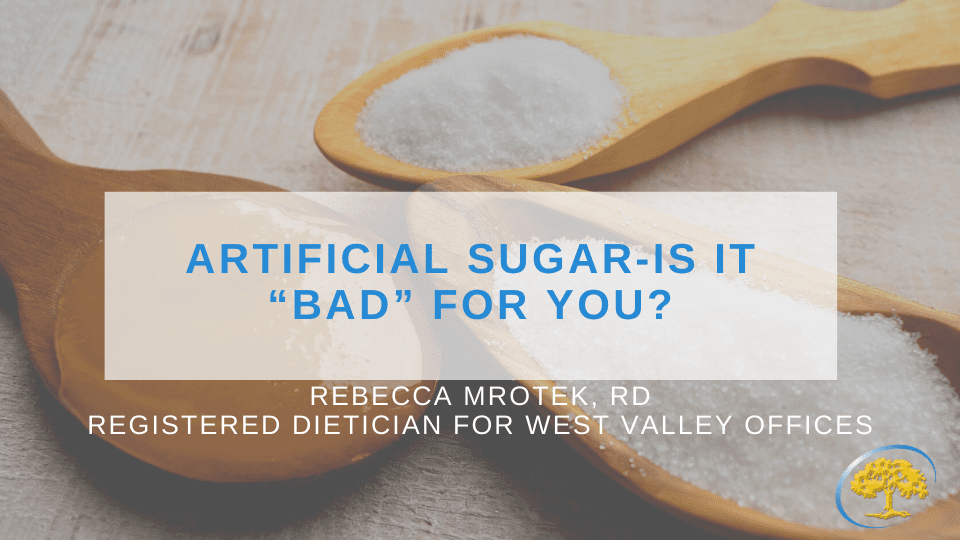
Posted 3 years ago
Artificial Sugar-is it “bad” for you?
What are artificial sugars?

Common types of artificial sugars
Sugar Substitutes
- Aspartame: commonly known as “Equal,” composed of aspartic acid and phenylalanine, 200x sweeter than your average table sugar
- Sucralose: commonly known as “Splenda,” chemically manufactured from sugar and 600x sweeter than sugar. Majority of sucralose is not absorbed by the body.
- Saccharin: also known as “Sweet N’ Low,” was linked to carcinogenic effects in 1977 but was never confirmed and remains available today in the United States although it is banned in Canada
- Neotame: also known as “NutraSweet” and is 8,000x sweeter than sucrose
- Stevia: sweetener extracted from plants, often mixed with other sweeteners
Sugar Alcohol
- Mannitol: a sugar alcohol derived from fruits and vegetables, has a tendency to cause GI discomfort
- Sorbitol: a sugar alcohol also derived from fruits and vegetables, does not usually have as much GI irritation as mannitol
- Erythritol: naturally occurring sugar alcohol derived from fermentation of fruit, fungi, wine, and soy sauce
Myth vs Fact
Artificial sweeteners can make me gain weight.
There are a couple of reasons why artificial sugars are thought to actually promote weight gain rather than provide less calories and promote weight loss. The brain is wired to react to sweetened foods with a metabolic reaction. When sweet foods are consumed but there are no attached calories, it is assumed that the brain could stop doing this metabolic reaction and not digest actual sugars with attached calories appropriately.
The brain will also turn off sweet cravings when presented with sugar, but this mechanism doesn’t work as efficiently if presented with an artificial sugar. Instead, the cravings are unsatisfied and can encourage a higher intake.
Artificial sweeteners can give me cancer.
No evidence links artificial sweeteners to cancer. If we look back on how artificial sugars are proposed to encourage weight gain, then an argument could be made for artificial sugars to increase risk of obesity-linked cancers, but it is not verified by any significant amount of evidence-based research.
Artificial sweeteners raise my blood sugar more than regular sugar.
This has some validity to it, but only sugar alcohols are linked to a rise in blood sugar. That means the sugar-free packets you add to your iced tea will be fine, but if concerned about blood sugar levels, avoid the use of mannitol, sorbitol, erythritol, and xylitol.
Many studies done around this subject have been animal studies being fed well above an average dose of artificial sugars and always need to be analyzed with that in mind*
This is a lot of information, and everyone will have different reactions to different foods. If moderation of foods is at the forefront of all nutrition, then we can minimize any negative effects that are associated with sugar substitutes.
Adapted from The American Journal of Clinical Nutrition, Indian Journal of Pharmacology, Journal of Pharmacology and Pharmacotherapeutics
